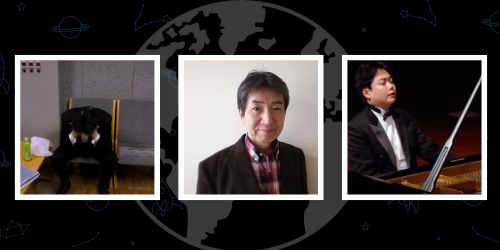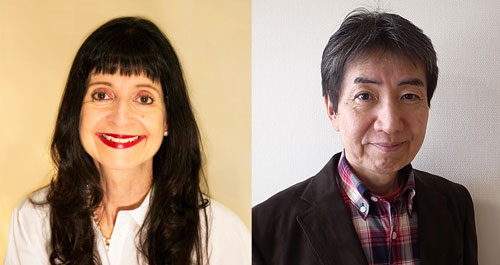这个月, 观众可以放映 钢琴家 在星球课堂网络上. 本片由星球课堂策划.
Directed by Kazuya Ashizawa, 钢琴家 tells the story of Yusuke Honda, a real-life international competition winner, struggling to master a challenging Beethoven piece. Through minimal dialogue and powerful piano playing, it vividly portrays Honda’s emotional journey from frustration to heartfelt performance, emphasizing themes of dedication, 毅力, and musical mastery.
全球搜索教育 is pleased to welcome Kazuya Ashizawa.
Kazuya, what inspired you to tell the story of a pianist struggling with a Beethoven composition?
In my case, encounters with my subjects are often by chance. This was the case with Yusuke, the subject of this documentary short film. When my wife and I learned that there was going to be a piano mini-concert at a nearby community center, we dropped by on our way to do some shopping. He was dressed up like a world-class pianist, but his body was stiff with nerves.
然而, the moment he touched the keyboard, the air in the concert hall changed completely. The concert hall was filled with sincerity and beauty, as if we were listening to Bach’s organ music in a church. My heart was filled with the desire to make him my subject. So the next day, I went to his home, met with his parents, and asked their permission to film Yusuke.
The instructor’s advice to accept all of Beethoven’s heart is a pivotal moment in the film. Can you discuss the significance of this advice and how it shapes Yusuke’s journey?
There were several people who taught Yusuke the piano, but it was a Bulgarian professor who had the greatest influence on Yusuke. He always told Yusuke, “Play each note carefully and understand the composer’s heart that is in the piece. Then you will be like Sviatslav Richter.” When he was young, he won two small international competitions, but after that, his career went into a slump, and he suffered a series of hardships. Yusuke followed these instructions to the letter and practiced hard, but he was having a hard time. He was in a semi-depressed state. He tried to instill that same spirit in the students at his piano lessons. 其结果, the students were also having a very hard time. I felt Beethoven in his suffering.
The film portrays an emotional journey with minimal dialogue. How did you approach directing Yusuke Honda to convey his internal struggles and triumphs through his performance and expressions?
I decided that this film did not need any more dialogue than was necessary. Yusuke, 然而,, is a quiet person, so he rarely spoke in the house. You may not believe it, but there is no acting in this film. There is a scene where Yusuke shaves his long beard, which is also not an act. He suddenly said, “I’m going to shave now,” and I rushed to get the camera ready. 对我来说, it was very meaningful to make a pure documentary film, showing how Yusuke thinks about the piano and realistically expressing his suffering before his solo concert at the Civic Hall. It is not often that a classical musician exposes his true face. I am truly grateful to Yusuke.
The cinematography and piano playing are among the film’s greatest strengths. How did you collaborate with your cinematographer and musicians to achieve the film’s visual and auditory impact?
I did most of the filming and recording by myself. Yusuke is very sensitive and does not like to have a large crew around him. I didn’t order Yusuke to do anything on the set. I just stayed by his side and kept the camera rolling. Yusuke was so focused during practice that he didn’t seem to mind me. This airy relationship between Yusuke and me may have been what produced the impressive images and piano performance.
谢谢, Kazuya.
C.M. Rubin with Kazuya Ashizawa
不要错过 钢琴家 现已在星球课堂网络上直播. 本片由星球课堂策划.







最新评论